Risque
Le rapport « La situation mondiale des transferts monétaires » du CaLP Network indique que l’idée selon laquelle les transferts monétaires seraient plus risqués que d’autres formes d’aide est l’une des barrières principales à l’utilisation fréquente de cette modalité. Ces craintes sont liées à l’insistance de plus en plus franche des bailleurs concernant la lutte contre le terrorisme et contre le blanchiment d’argent, et à l’amenuisement des budgets destinés à l’assistance humanitaire. Le travail du CALP Network sur cette problématique vise à combattre les idées reçues, à faciliter la collaboration et à partager les apprentissages afin de veiller à ce que les transferts monétaires soient systématiquement considérés, tout comme d’autres modalités, en fonction des données probantes disponibles sur les risques réels de toutes les modalités.
Priorités actuelles
Plusieurs organisations travaillent actuellement sur les risques entraînés par les transferts monétaires. Le CALP Network cherche à identifier les synergies entre acteurs, à éviter les duplications et à définir des priorités communes sur lesquelles nous pourrions agir plus efficacement en groupe. Avec le PAM, le CALP Network co-dirige l’élément Risques, priorité du chantier du Grand Bargain sur les transferts monétaires.
Contenu présenté
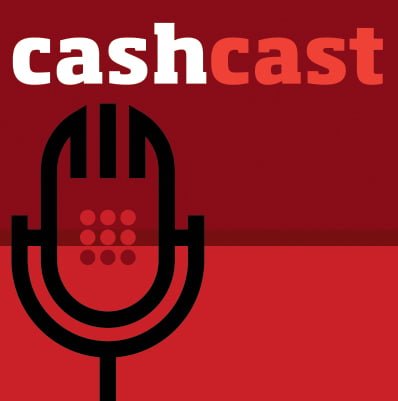
Podcast: Will risk aversion hold us back from realizing the potential of CVA?
Podcast
Episode 1 of the CashCast, exploring how attitudes to risk have impacted the use of CVA in the Middle East and North Africa region.

Transferts monétaires et risques : ce qui se passe sur le terrain, reste sur le terrain (et pourquoi c’est un problème)
Blog Post
En octobre 2019, le CALP Network a facilité à Douala, au Cameroun, une réunion de partage d’expériences sur les risques liés à la protection des bénéficiaires dans les interventions monétaires. Cette réunion restreinte, organisée dans le cadre d’une série de rencontres dans différentes régions, a permis à 25 travailleurs humanitaires d’Afrique de l’Ouest et du Centre,...

Webinar: Data sharing in CVA: ethics, ownership and privacy
Event
Thematic lead
Contenu récent

Cash Transfer Programming in Armed Conflict: The ICRC’s Experience
Report
Money is the main means of survival for most people around the world. That remains the case in situations of armed conflict, when having cash to buy essential goods can mean the difference between life and death.
The ICRC’s experience shows that cash is an essential tool in humanitarian action in armed...

E-Transfer implementation guide
Guidelines and Tools
This updated E-transfer Implementation Guide replaces the original guide published in 2014. In cash transfer programming (CTP), electronic transfers (e-transfers) are a digital replacement for paper vouchers or physical cash. E-transfers are a disbursement mechanism – a way of transferring money, goods...
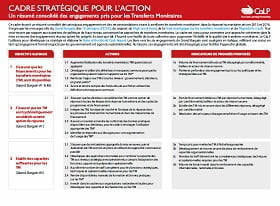
Cadre stratégique pour l’action
Guides et outils
Un resumé consolidé des engagements pris pour les Transferts Monétaires

How We Built a Global Action Agenda to Enable Digital Payments in Humanitarian Response
Blog Post
In recent years, digital payments have emerged as an essential, high-impact tool for humanitarian response. They can enable humanitarian responders to quickly reach people with assistance, and in ways that provide both short- and long-term benefits to those in need, such as access to safe and portable...

Libya Cash and Markets Working Group (CMWG) Advocacy and Communications Plan
Report
The Libya Cash & Markets Working Group (CMWG) Strategic Framework & 2017 Workplan outlines ‘communication and advocacy’ as a ‘deliverable’ for supporting ‘HC/HCT decision making’.
Throughout March & April 2017, the CMWG Steering Committee used a series of tools as part of a seven-step process...

Conflict-sensitive Cash Transfers: Unintended negative consequences
Report
Risks associated with cash transfer programmes in fragile contexts include theft, diversion, corruption, security, targeting, misuse by beneficiaries and inflationary effects. However, the literature indicates that – while different – these risks are no greater than those associated with other forms...
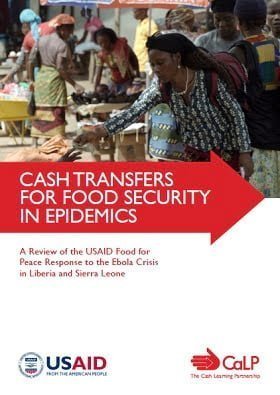
Cash Transfers for Food Security in Epidemics
Report
The report is divided into five chapters. The introduction provides a brief overview of the study’s objectives, data collection methods and a snapshot of the context in Liberia and Sierra Leone. The second chapter describes USAID/FFP’s response to the Ebola crisis with a particular focus on CTP....
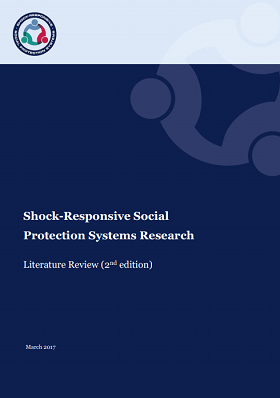
Shock-Responsive Social Protection Systems Research: Literature Review (2nd Edition)
Report
DFID has commissioned research into Shock-Responsive Social Protection systems, to further understand the nature of the interaction between social protection, humanitarian and disaster risk management systems and ways in which long-term social protection systems can be scaled up to provide support in...
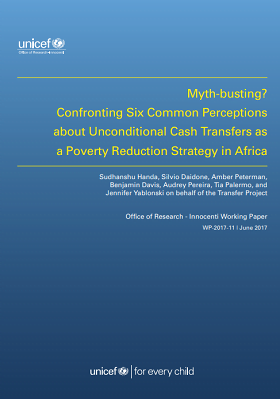
Myth-busting? Confronting Six Common Perceptions about Unconditional Cash Transfers as a Poverty Reduction Strategy in Africa
Report
This paper summarizes evidence on six perceptions associated with cash transfer programming, using eight rigorous evaluations conducted on large-scale government unconditional cash transfers in sub-Saharan Africa, under the Transfer Project. Specifically, it investigates if transfers: 1)...

The Financial Journey of Refugees Full Report
Report
This document details how refugees and migrants from the Middle East, South and Central Asia and East, West and North Africa finance their journeys and manage money along the way.

Multi-sector Market Assessment: Companion Guide and Toolkit
Guidelines and Tools
The Multi-sector Market Assessment: Companion Guide and Toolkit provides step-by-step guidance and ready-to-use tools to enable non-specialist staff to conduct market assessments and undertake market monitoring. The purpose of this Companion Guide and Toolkit is to enable Multi-Functional Teams to...
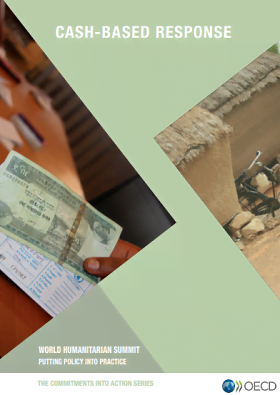
Cash-Based Response- OECD Commitments into Action Series
Report
The use of cash in humanitarian response is not new. What is new, notably after the World Humanitarian Summit and the Grand Bargain, is the policy momentum for using cash as a primary option in responding to humanitarian needs. There is a growing body of evidence demonstrating its multiple benefits as...

Community Based Targeting Report
Report
The current study aimed to gain a comprehensive understanding of SEV from the community’s perspective and to assess the targeting practices implemented by cash actors in Lebanon. It demonstrated that, according to the community, HH size had an impact on vulnerability, but that that depended on its...
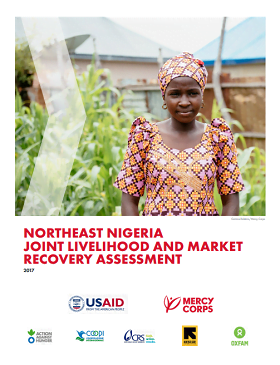
Northeast Nigeria joint livelihoods and market recovery assessment
Report
Mercy Corps Nigeria, in conjunction with Action Against Hunger, Cooperazione Internazionale, Catholic Relief Services, the International Rescue Committee and Oxfam undertook the assessment across the three most affected states in Northeast Nigeria; Adamawa, Borno and Yobe, to better understand...

Partnering with Mobile Network Operators in Zimbabwe to Deliver Cash Transfers
Report
This case study seeks to investigate and document the following: The process of engagement between MNOs and CARE. Clarity of roles between CARE/WVI as implementing agencies and MNOs. Successes and challenges in the partnership between CARE/WVI and the MNOs Measures taken to manage the impact of the...
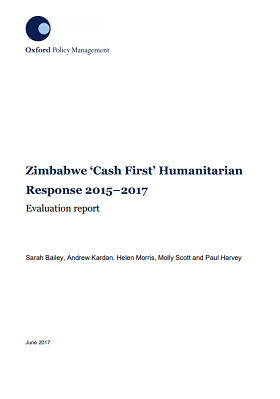
Zimbabwe ‘Cash First’ Humanitarian Response 2015–2017: Evaluation Report
Report
CARE International and World Vision International (WVI) in Zimbabwe implemented the UK Department for International Development (DFID)-funded project ‘Emergency Cash First Response to Drought-Affected Communities in the Southern Provinces of Zimbabwe’ from August 2015 to April 2017. The project...

Delivery Mechanism Mapping for Cash Based Interventions in Cox’s Bazaar Bangladesh
Report
The ‘Delivery Mechanism Mapping for Cash Based Interventions (CBI) in Cox’s Bazaar, Bangladesh’ was conducted in December 2017 by a ‘Cash Champion’ deployed from Catholic Relief Services (CRS) with the support of the Global Shelter Cluster and ECHO, and involved consultations with numerous...

Managing Cash-Based Programmes in a Volatile Markets Contexts: The Case of Delivering Cash Using Mobile Money During the Zimbabwe Cash Liquidity Crisis
Report
This case study examines how the Zimbabwe national cash crisis evolved and the ways in which affected communities and the CTP adapted to the challenges it posed. The study highlights what worked well, what was less effective, and some other possible future opportunities. It also provides operational...

Cash or in-kind? Why not both? Response Analysis Lessons from Multimodal Programming
Report
This research reviews lessons learned about response analysis from multimodal responses, that is, responses in which practitioners determined that more than one response modality between cash,vouchers, and in-kind, was a “best fit” or in which the conclusions about “best fit” changed over...

Cash Delivery Mechanism Assessment Tool
Guidelines and Tools
In line with its commitment to institutionalise the use of Cash-Based Interventions (CBIs), the office of the United Nations High Commissioner for Refugees (UNHCR) released the Operational Guidance for Cash-Based Interventions in Displacement Settings (“the Guidelines”) dated 4 February 2015, to...



